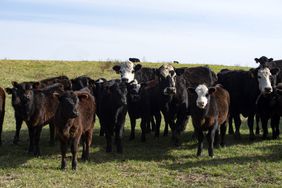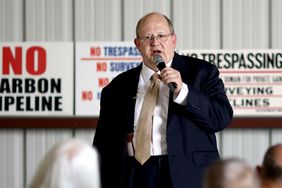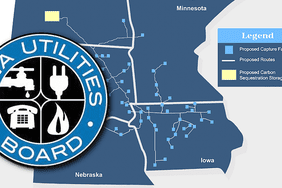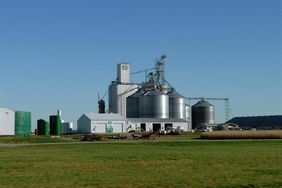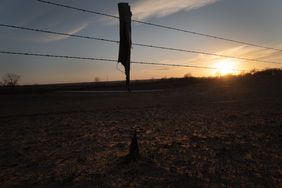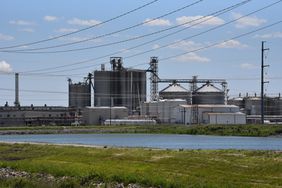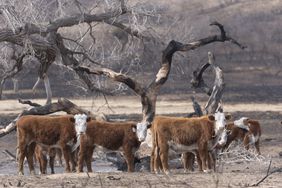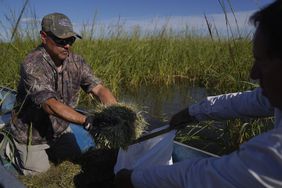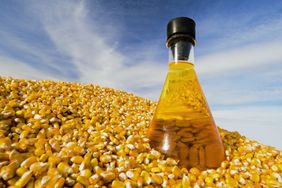:max_bytes(150000):strip_icc()/KatieCook-Headshots-Highlights-43-6afd7f9cd5d7408b818bab5485f7501b.jpg)
From a young age, Katie Cook, Elanco vice president of Farm Animal Innovation & Marketing, had a passion for beef cattle. Cook grew up on her parent's purebred cow-calf operation in Michigan.
With the daily tasks of fixing the fence, preparing the cattle for shows, and assisting with the herd's calving, Cook's love for beef cattle and livestock led her to become a member of Elanco's marketing team, where she gained an understanding of the industry's need to be innovative with health and welfare.
In her role, Cook's team introduces new solutions to help livestock farmers be profitable with animal health while supporting the planet's health. Elanco works to keep livestock healthier while reducing the sector's carbon footprint by 50% with a portfolio of health management tools.
Cook will be speaking at the Animal AgTech Innovation Summit on March 13. The summit is an annual meeting for farmers, veterinarians, nutritionists, technology developers, retailers, and investors to exchange insights on improving the sustainability of animal welfare and the planet.
Cook sat down with Successful Farming to reflect on her thoughts on how sustainability and livestock, including beef cattle, can work together in building a healthy food supply and planet for generations.
SF: What is the biggest challenge facing the U.S. production livestock industry?
Cook: Sustainability is our greatest challenge and an opportunity facing our livestock industry. Generation Z and Millennials are choosing foods based on environmental impact. Other countries have attempted to reduce livestock herds or increase the regulation of livestock farmers. In the U.S., we can help livestock producers reach sustainability goals while also helping make sustainability an economic opportunity.
SF: Are there any innovations that would be revolutionary for livestock producers?
Cook: There's a lot of interest in methane-reducing technologies and helping farmers continue to be good stewards of the land and the natural resources. But why is everyone focused on methane? It's all about temperature.
Methane lasts about a decade in the atmosphere and is 25 times more potent than carbon dioxide at trapping heat. So in making small reductions, we can create a more significant impact on temperature and see livestock farmers reach climate neutrality, improve air quality, and protect water quality in the next decade by reducing methane emissions by 20% to 30%.
Our beef cattle production lifecycle – from birth, including feed production such as hay, silage, and grains, to the packer – is estimated to be about 34% of U.S. overall ammonia gas emissions.
Experior is one of Elanco's newest innovations and is an FDA-approved product with an environmental claim to help reduce ammonia gas emissions per pound from cattle on feed. In our experiments with Experior, we saw it reduced ammonia gas emissions by 13% to16% in cattle, according to clinical research studies.
SF: How can livestock farmers better animal health on-site with the new toolbox of pharmaceutical therapies, genetic improvements, and nutrition aids?
Cook: Farmers can optimize their use of technology to improve their livestock sustainability and efficiency. For example, PenPoint, our latest health innovation, is a bolt-on chute technology that assists with sorting cattle feeders to maximize profitability and simplifies the difficult task of objectively measuring and sorting cattle, using insights to empower data-driven decision-making.
The technology uses a camera system to capture compositional metrics so feed yards can make faster sorting decisions. As a result, the PenPoint algorithm allows cattle to be more consistent in size and maturity. When sold on a grid, farmers see more premiums and fewer discounts; when sold live, cattle return more value due to increased live weights.
SF: From a nutritional and welfare perspective, how can livestock farmers enhance animal care management to reduce disease?
Cook: A well-balanced ration is a foundation for healthy animals as it equals a healthy immune system, which allows vaccinations to be more effective. Stress and cortisol production can drive livestock to have a lower immune system and increase disease susceptibility. Providing a diet that meets the animal's nutritional requirements, such as protein and energy, for the desired production level alleviates overall stress on the animal.
SF: What do you believe the next five years will look like for animal health and welfare management for the American livestock farmer?
Cook: There will always be innovation in the animal health space. Many new advancements Elanco looks at are preventative measures, such as a holistic approach to animal health, nutrition, or enzymes.
Nutritional health is also evolving daily as our industry learns more about how the intestinal system interacts with other body parts — it allows us to use nutrition to fight and prevent disease. However, there is still much to learn in this area as the microbiome of the gastrointestinal system, or gut microorganisms, is highly complex.
In addition to tackling traditional diseases, we see infectious outbreaks like Avian influenza and African swine fever. Farmers must be ready to respond quickly to these devastating and widespread diseases. So, biosecurity practices will become a regular part of all livestock farm routines.

